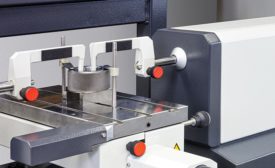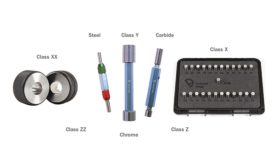Home » gages
Articles Tagged with ''gages''
As with any measurement process, reducing the influence of the human element helps improve the results and reduce the measurement uncertainty.
Read More
The Gage Selection Conundrum
The correct selection of measuring devices will ensure the quality, price and delivery of the products we manufacture and use.
May 1, 2020
Quality Audits: You're Kidding Me!
The auditor determined that it was not precise enough.
March 15, 2020
Whose Acceptance Limits?
Part 2 of 2 - Practical Acceptance 'Limits' are a judgement call.
February 8, 2020
Whose Acceptance Limits?
Part 1 of 2: Learn more about these boundaries of precision.
January 1, 2020
Facing Reality, Part II
When measurement disputes arise, the finger pointing begins.
November 1, 2019
Facing Reality
Disputes over measurements continue to plague the industry.
October 1, 2019
Stay in the know with Quality’s comprehensive coverage of
the manufacturing and metrology industries.
eNewsletter | Website | eMagazine
JOIN TODAY!Copyright ©2025. All Rights Reserved BNP Media.
Design, CMS, Hosting & Web Development :: ePublishing






